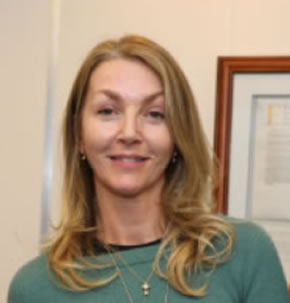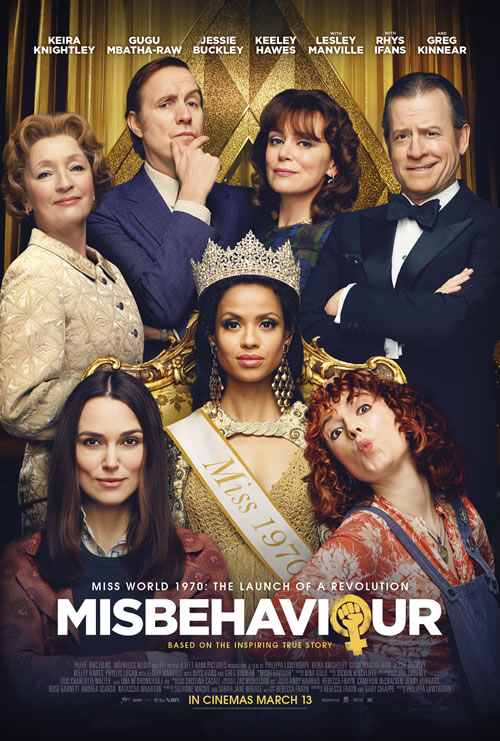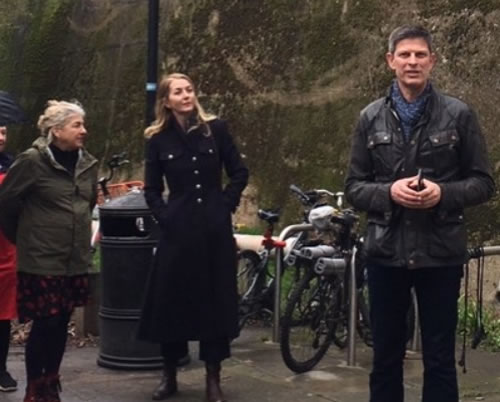Rebecca Frayn on a 'A Story Crying Out To Be Told'
Her latest film tells the story of a protest by feminists at the 1970 Miss World contest
|
Misbehaviour, which has just opened in UK cinemas, tells the story of the disruption of the 1970 Miss World show in London by members of a newly-formed women's movement. The film is directed by scripted by Rebecca Frayn, and produced by Suzanne Mackie, both Chiswick residents, and its cast (Keira Knightley, Jessie Buckley, Keely Hawes) also includes another Chiswick local, Suki Waterhouse.

Rebecca spoke to Chiswickw4.com about the movie, which went on general release Friday.
What attracted you to the story in the first place?
Ten years ago, sitting in different parts of London, the producer Suzanne Mackie and I happened to hear the same documentary on Radio 4 that charted the disruption of the Miss World show by the newly-formed womens' movement in 1970 by bringing back the key protagonists around the table. Suzanne and I met in a state of great excitement a few days later to agree that here was a story just crying out to be told as a feature film. We were incredulous that this seminal feminist story had been so lost to posterity. It had mischief and humour and a message so incredibly relevant to the modern world that we both knew we had found our next project.
How did you approach the writing - did you follow the events from a historically accurate perspective or is there an element of fiction based around the story or the characters?
We were in close touch with a number of the demonstrators and Jennifer Hosten, the first women of colour to win the competition, right from the very outset of the development period. Their input and support was absolutely integral to the whole project. The director Philippa Lowthorpe and myself both come from documentary backgrounds and so it is second nature to us to work collaboratively with the individuals whose stories have inspired us and to try to honour the truth of their story as closely as possible. However, the film is an ensemble piece of eight characters and so sometimes liberties were taken to create intersections between them so that each one eventually connects, even though in real life their stories ran separately but in parallel. The personalities of the two main demonstrators Sally Alexander and Jo Robinson, played by Kiera Knightley and Jessie Buckley, are as written in the script. Sally is the more bookish academic who was the intellectual heart of the Women's Movement and Jo was more of a natural anarchist and served to be the agent of mischief. They forged an unlikely friendship after both being arrested, one that endures to this day.

You were very young when this took place, but do you have any memories of watching beauty contests while you were growing up, did you have any particular attitudes towards them?
I was 8 in 1970 and don’t remember watching the Miss World Show the night all hell broke loose - but I was certainly very aware of the show. Women in those days very seldom appeared in public and certainly not in positions of power so their rare outings as game show hostesses or beauty queens definitely helped create an oppressive sense as I was growing up that our primary function as young women was to be decorative. The women's liberationists declared it a cattle market and they were right. The Miss World Show was at the time the highest rated show in the world, watched by an astonishing 100 million people. In those days the young women were paraded up and down while their vital statistics were read out. So they were either blondes or brunettes and a combination of their breast, waist and hip measurements. And if they got down to the final 15, they appeared in their swimming-costumes and at a given signal, had to turn to the camera to show their back sides so that everyone at home, together with the judges, could decide on who had the finest rump. Pretty crude stuff! It is true that it provided career openings for some of the contestants. Jennifer Hosten for example, who went on to win the competition that year became an ambassador for Grenada. But that was only because all other forums were so closed to women.
What were you trying to achieve by highlighting the event in a film, is there a message?
Because tales that celebrate women being pro active were very thin on the ground when I was growing up, I became passionate about the importance of showcasing diverse women's experiences as I came to understand how broader based stories can help women imaginatively break free from the conventions that have traditionally confined us. So I have spent much of my career telling the stories of high profile women like Aung San Suu Kyi who lead Burma to democracy – as well as unknown women like Sara Thornton who became a figure head for the way women who had suffered domestic violence were dealt with by the law. In addition to which, having been involved in environmental lobbying, I’m also interested in how social change is affected. The women who launched the Women's Liberation movement at the Ruskin College, Oxford at the beginning of 1970 brought about real and systematic change. But they were really very modest in numbers. As Margaret Meads the American cultural anthropologist so cogently phrased it. “Never doubt that a small group of thoughtful, committed citizens can change the world; indeed, it’s the only thing that ever has."

Rebecca (centre) unveiling the artwork for the Chiswick 4th Plinth
Are there any worries about the coronavirus affecting the openings/ release?
Yes the Coronavirus has had a massive impact on the opening of the film. But Misbehaviour will continue to have a life on Sky and then the BBC. Films endure!
How do you think younger women, will relate to the film?
The film scores most highly with young women and many of them have written to me describing leaving the film in a state of jubilation. Misbehaviour charts the first and last direction action women have taken since the suffragettes. We women have so little history, and young women are delighted to learn about the tinder spark that lead in time to MeToo and the Women's Marches
What’s next on your writing agenda?
My next project is a collaboration with my father, Michael Frayn who is adapting his Whitbread winning novel Spies which I will direct.
How long have you lived in Chiswick and what do you love about living here?
I’ve lived in Chiswick for nearly 30 years and most enjoy the access to the river and the abundance of green spaces. It’s been a wonderful place to raise our three children.
Anne Flaherty
March 14, 2020